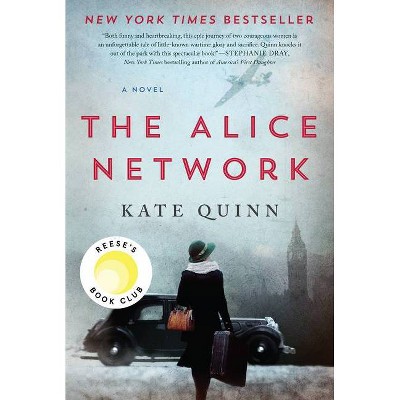Sponsored

How Neighborhoods Make Us Sick - by Veronica Squires & Breanna Lathrop (Paperback)
In Stock
Sponsored
About this item
Highlights
- Our neighborhoods are literally making us sick.Buildings with mold trigger asthma and other respiratory conditions.
- About the Author: Veronica Squires is chief administrative officer for Good Samaritan Health Center in Atlanta.
- 240 Pages
- Religion + Beliefs, Christian Life
Description
About the Book
Our neighborhoods are literally making us sick. If we truly want to love our neighbors, we must work to create social environments in which people can be healthy. While working in community redevelopment and treating uninsured families, Veronica Squires and Breanna Lathrop discovered that we can promote the health of our communities by addressing social determinants that facilitate healing in under-resourced neighborhoods.
Book Synopsis
Our neighborhoods are literally making us sick.Buildings with mold trigger asthma and other respiratory conditions. Geographic lack of access to food and health care increases childhood mortality. Community violence traumatizes residents. Poverty, unemployment, inadequate housing, food insecurity, racial injustice, and oppression cause physical changes in the body, resulting in disease and death.But there is hope. Loving our neighbor includes creating social environments in which people can be healthy. While working in community redevelopment and treating uninsured families, Veronica Squires and Breanna Lathrop discovered that creating healthier neighborhoods requires a commitment to health equity. Jesus' ministry brought healing through dismantling systems of oppression and overturning social norms that prevented people from living healthy lives. We can do the same in our communities through addressing social determinants that facilitate healing in under-resourced neighborhoods.Everyone deserves the opportunity for good health. The decisions we make and actions we take can promote the health of our neighbors.
Review Quotes
"How Neighborhoods Make Us Sick is an excellent and desperately needed addition to the nursing literature on community and social justice. Impressive for its narrative style that provides accessibility, relevance, and a guide for praxis, Veronica Squires and Breanna Lathrop detail their journeys and desires to help the most vulnerable in society and offer us a glimpse into the transformation of mere practice into praxis--practice that is intentionally aimed at social justice goals. Their pathways to praxis are substantiated by their poignant and pragmatic accounts of emerging awareness, deep self-reflection, risk taking, choosing change, and taking action to transcend present circumstances for both their clients and themselves. A mandatory book for current times as nurses expand their scope and locus of practice into the community. How Neighborhoods Make Us Sick is an amazing example of emancipatory nursing. It will transfix and engage any health care provider seeking to reduce suffering by uncovering and challenging systemic barriers to better society and quality of life through true praxis."
--Paula N. Kagan, associate professor, DePaul University, lead author, Philosophies and Practices of Emancipatory Nursing: Social Justice as Praxis"How Neighborhoods Make Us Sick was a disturbing read because in its pages I saw descriptions of where my two young-adult, adopted, biracial sons potentially would be if they did not have the safety net of financially secure parents behind them. The authors are realistic about the complexity of the problems that those with limited resources face. They avoid simplistic answers while offering possible solutions for greater overall health. Maybe there is hope after all."
--Heather Davediuk Gingrich, professor of counseling at Denver Seminary, coeditor of Treating Trauma in Christian Counseling"The time is right for an insightful, well-documented exposé of the pathology in poverty neighborhoods and a road map for the journey toward health and wholeness. How Neighborhoods Make Us Sick is just that. Turning troubled communities around is no small challenge, the authors admit. But there are practical steps that have proven to be effective. This is essential reading for anyone engaged in service among the poor."
--Bob Lupton, community developer, author of Toxic CharityAbout the Author
Veronica Squires is chief administrative officer for Good Samaritan Health Center in Atlanta. She previously served as director of corporate development for Boys and Girls Clubs of Metro Atlanta and as the Georgia director of ministry partnerships for InterVarsity Christian Fellowship. She is a certified CCDA practitioner and serves on the advisory board for the Georgia Charitable Care Network.
Breanna Lathrop is chief operating officer and a family nurse practitioner for Good Samaritan Health Center. She earned her doctor of nursing practice from Georgia Southern University and a master of public health and a master of nursing from Emory University. She is passionate about eliminating health disparities through improving health care access and health outcomes among vulnerable populations, and has previously published on the social determinants of health.
Shipping details
Return details
Frequently bought together



Trending Non-Fiction






Discover more options








